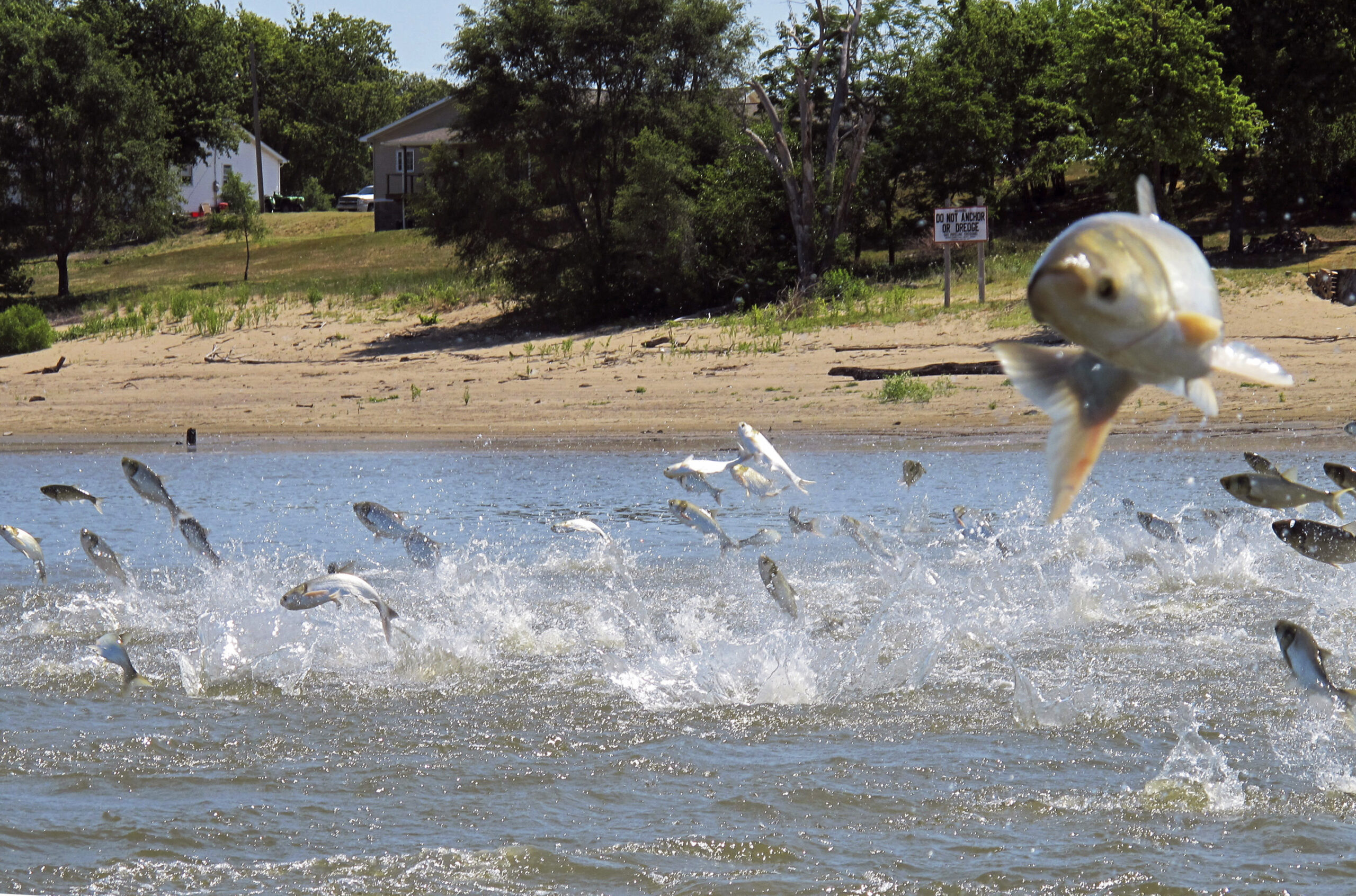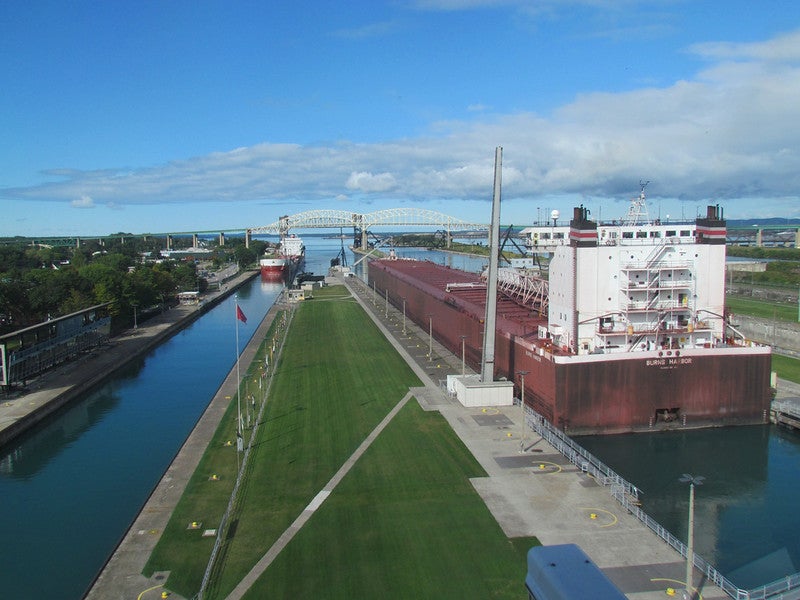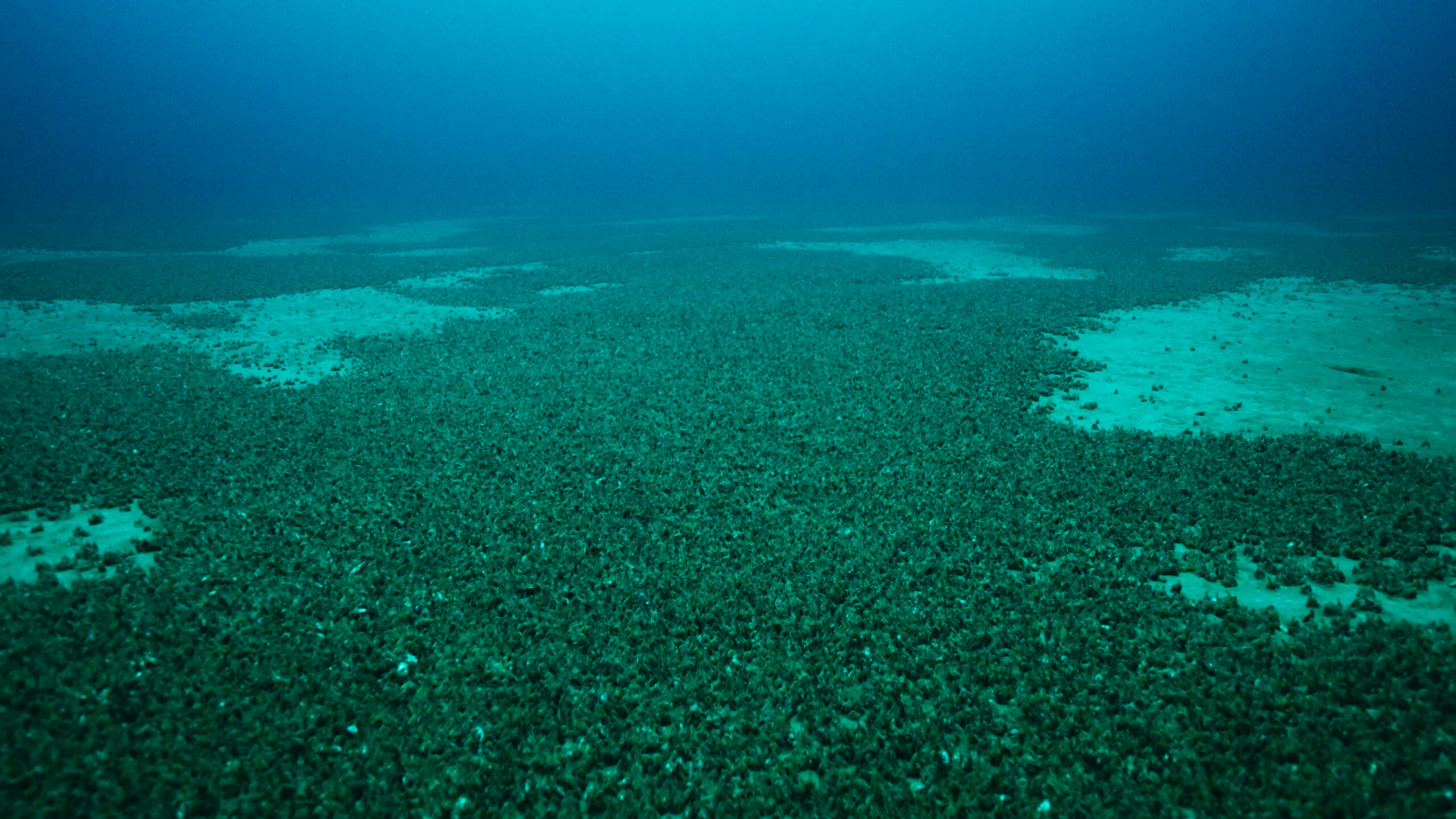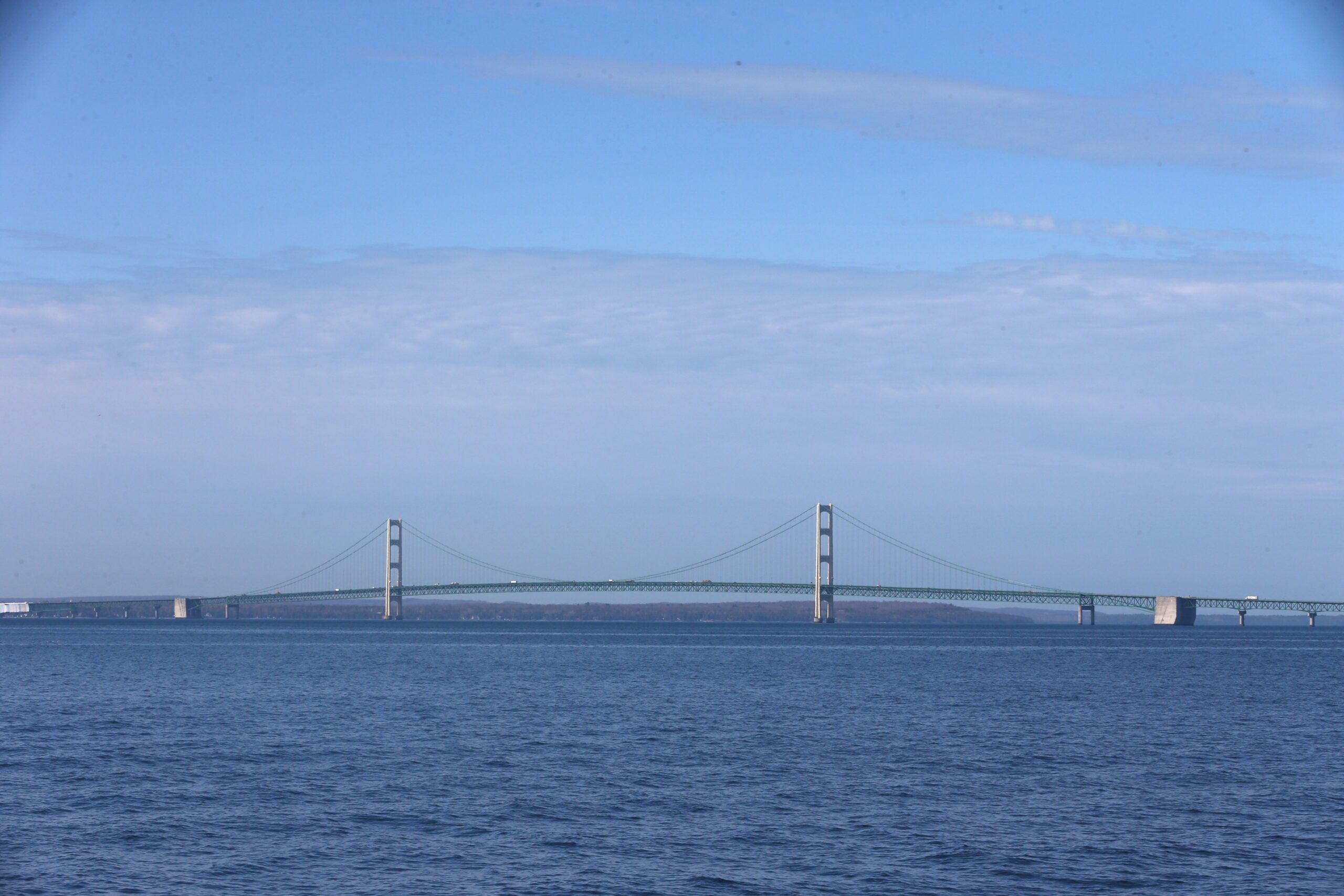A plan to build a barrier to keep invasive carp out of the Great Lakes has hit a roadblock due to concerns about federal funding available under the Trump administration.
In December, the U.S. Army Corps of Engineers announced the first construction contract had been awarded for the $1.15 billion project at the Brandon Road Lock and Dam on the Des Plaines River near Joliet, Illinois. The work includes installing underwater defenses to keep invasive carp from getting into the Great Lakes.
But a Monday letter from Natalie Finnie, director of the Illinois Department of Natural Resources, to the U.S. Army Corps of Engineers, said the Tuesday “property rights closing” for the first part of the project will be postponed due to the “anticipated lack of federal funding.”
Stay informed on the latest news
Sign up for WPR’s email newsletter.
“The Trump Administration’s lack of clarity and commitment to delivering funds from the Bipartisan Infrastructure Law to the Illinois Department of Natural Resources leaves the state to anticipate a lack of federal funding for the Brandon Road Project,” Finnie wrote.
The move comes as concerns related to the availability of federal grants and funding have ramped up since President Donald Trump took office.
A statement from Illinois Governor JB Pritzker said $117 million in federal grants from the Bipartisan Infrastructure Law have been withheld from the Illinois Department of Natural Resources since Trump took office. Pritzker, a Democrat, wrote that the Trump administration, “cannot be trusted to legally uphold its financial commitments.”
“We cannot move forward until the Trump Administration provides more certainty and clarity on whether they will follow the law and deliver infrastructure funds we were promised,” Pritzker wrote in the statement.
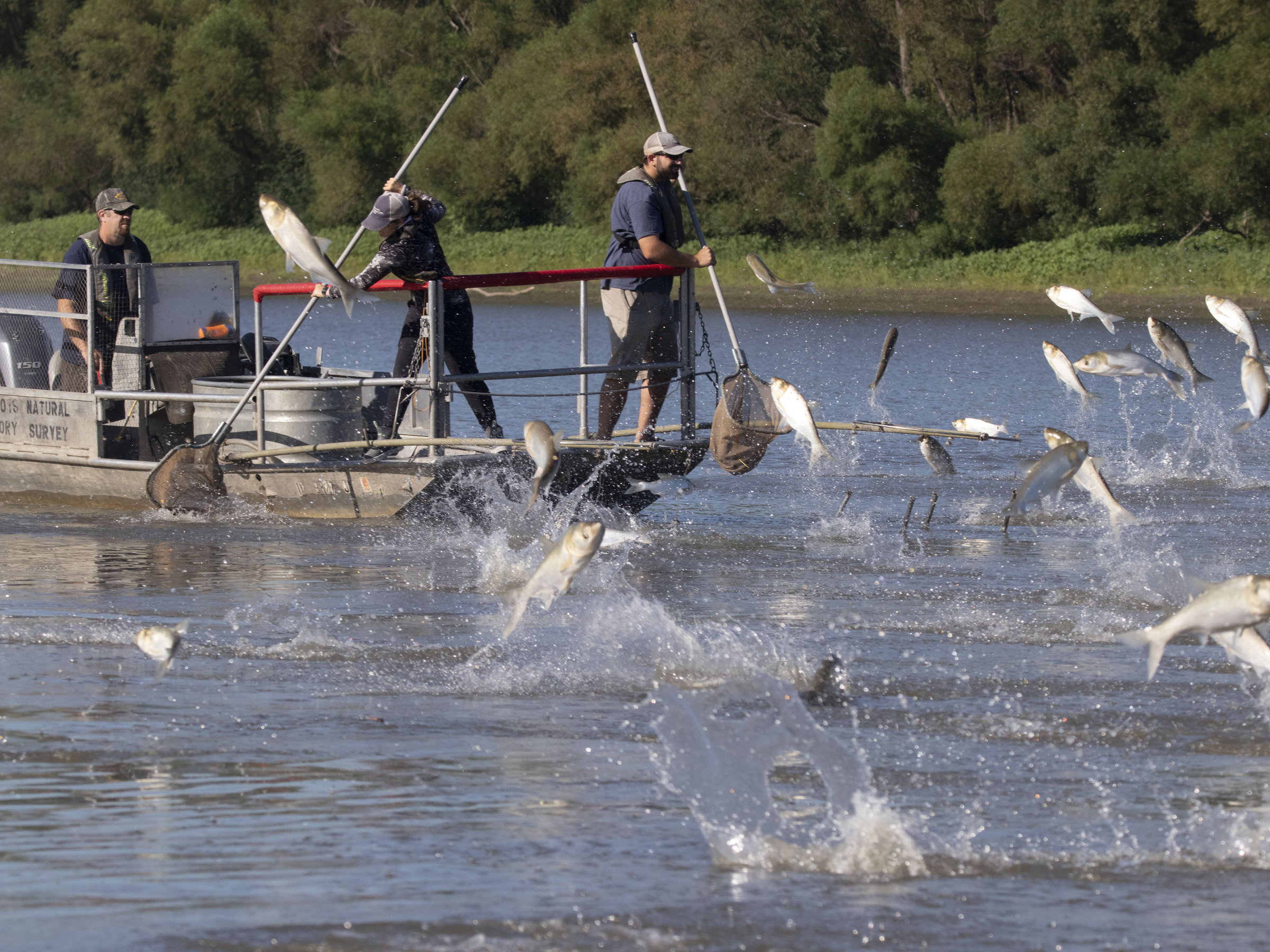
Donald Jodrey, the director of federal relations for the Alliance of the Great Lakes, said the project is “extremely important” for the Great Lakes region.
“When you halt or delay the construction of this, you increase the chance of having carp in the lake,” Jodrey said.
When asked about the delay Tuesday, Wisconsin Gov. Tony Evers said he understood the decision to delay the project.
“I don’t blame them [Illinois], I’d do the same thing,” Evers said. “If you don’t know if the money is going to be there, how can you go forward and do this.”
In her letter, Finnie wrote the project will, “protect the ecosystem and economy of the entire Great Lakes region” from the invasive carp. The fish which were introduced to the southeast in the 1970s, according to the U.S. Department of the Interior.
Finnie said the Illinois Department of Natural Resources is still “ready to move forward” if the Trump administration provides more certainty about funding.
“The Illinois Department of Natural Resources will be requesting a potential May 2025 closing to allow Illinois to receive written assurances of federal funding,” Finnie wrote.
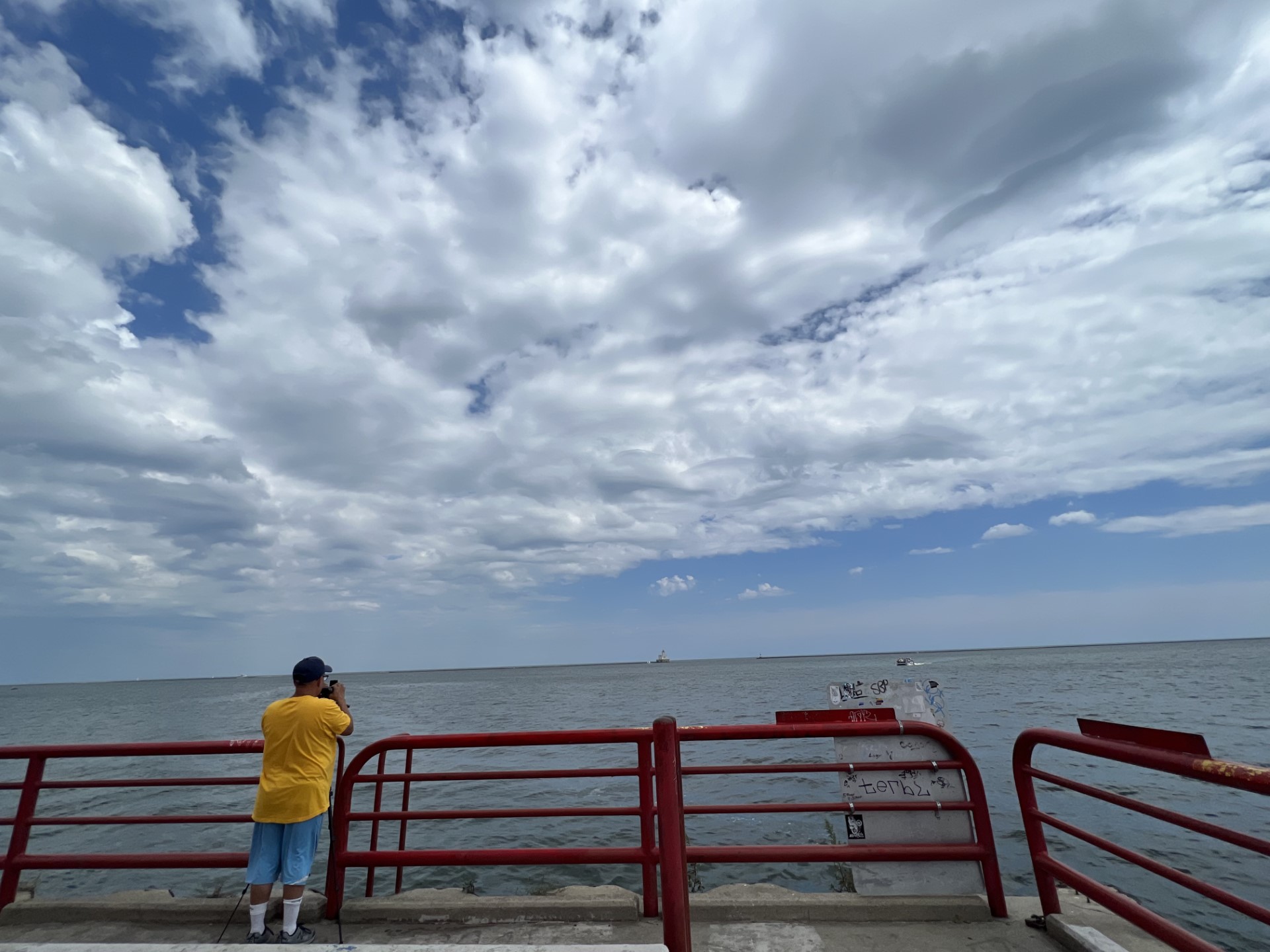
The goal of the project is to keep invasive carp from getting into the Chicago Area Waterway System, which connects to Lake Michigan. The underwater defenses include tools like noisemakers, a bubble curtain, an electric barrier and a flushing lock.
According to the U.S. Army Corps of Engineers, the Brandon Road Lock and Dam was, “identified as the critical pinch point” where the invasive carp could be stopped from coming into the Great Lakes.
“If established in the Great Lakes, invasive carp could outcompete native species and greatly harm the ecology and economy of the entire Great Lakes region and its $20 billion fishing and boating industries,” the Army Corps stated.
Cheryl Nenn of Milwaukee Riverkeeper said the delay is concerning. Live invasive carp have already been found near Lake Michigan.
“If they do get up here [Wisconsin], there’s potential impact on our native species and our river ecosystems, as well as our ability to safely fish and boat and enjoy our water,” Nenn said.
In a Tuesday statement, Allen Marshall, a spokesperson for the U.S. Army Corps of Engineers, said “site preparation and riverbed rock removal” for the project is still underway.
Wisconsin Public Radio, © Copyright 2025, Board of Regents of the University of Wisconsin System and Wisconsin Educational Communications Board.
